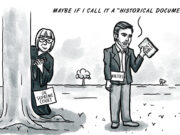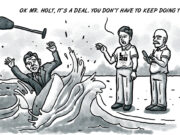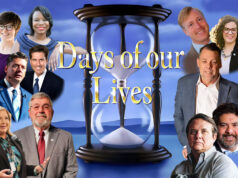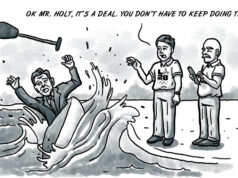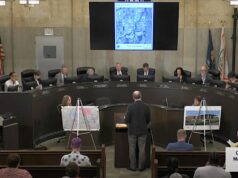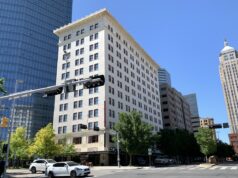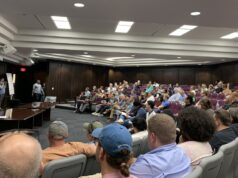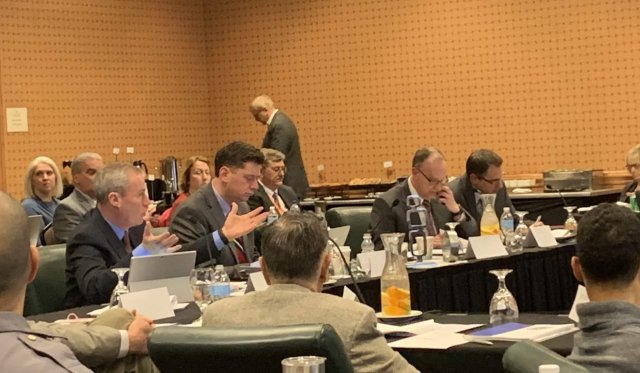
Just before Oklahoma City University economics professor Russell Evans began his presentation for an OKC City Council budget workshop this morning at the Cox Convention Center, an announcement about an impending fire alarm test interrupted the proceedings.
Evans quipped the fire alarm might be a good metaphor for what lies ahead economically on the city, state and federal level as officials begin planning for Oklahoma City’s 2021 budget.
While projections for the city’s economy aren’t dire, officials will need to grapple with flat revenue and rising expenses which will necessitate cuts up 2.2 percent across all departments with the exception of police and fire. The police and fire departments are being asked to trim up to .03 percent.
Evans said there are differing opinions among economists and CEOs about the nation’s economy. He said economists are slightly more optimistic than CEOs and business leaders about avoiding a recession in 2020. But Evans cautioned those leaders may be considering things in their operations that have not made it into data economists use to develop predictive models.
Evans cited coronavirus as an example of an event that could curb demand for fossil fuels while also reducing production at Chinese factories. All of those factors could cause the state and city’s economy to contract along with the nation’s, he said.
Locally, the city expects to collect $399 million in general fund revenue for Fiscal Year 2020, which ends June 30. It’s projected to collect roughly the same amount in Fiscal Year 2021 beginning July 1.
Holt: Budget will likely be flat
For city leaders, Tuesday’s budget workshop was a chance to brace for whatever economic conditions lie ahead.
“I’m proud that we have these kinds of conversations and that we plan ahead and that we have a history and a culture in our city government of reacting appropriately, which means we’ve avoided the kind of roller coaster situations that are so common in other cities,” Mayor David Holt said.
Despite the slight cuts being considered for city departments, Holt characterized the overall budget as essentially flat for 2021.
“There is every reason to think we need to pump the brakes a little bit, and this may be a year where we need to essentially look at a flat budget,” Holt said. “It’s important to remember that, even when your revenues grow, often your costs exceed that growth. So it seems like we’ll be presented with a budget that is basically flat. But that doesn’t change MAPS 4 or the extra police officers voters have approved. Those aren’t in jeopardy at all. It just means we likely won’t be adding anything more, like we did with Sunday bus service last year, that we’ve haven’t already talked about as a community.”
Cooper concerned, but encouraged by planning
As Ward 2 Councilman James Cooper took in the news of what could be a coming recession, he wondered what it might mean for his own generation.
“I think for me the most pressing concern is for the millennial generation,” he said. “Nationwide we know even with low unemployment levels our generation, with or without college degrees, is in debt and paying service on that debt that previous generations would have used to pay a mortgage, which is why we’re seeing lower numbers of millennials who own their own homes. That’s very concerning to me.”
Cooper said he was encouraged by the efforts to plan ahead five and 10 years out which helps the city avoid drastic cuts to staff and services. Still, he’s not sure exactly what the budget cuts will look like in the end.
“Until I see the budget and until I see the impact I won’t know how to answer that question,” he said. “We will be doing our best to limit those cuts to services that we provide to people.”
The city’s final FY 2021 budget will be presented to the council on May 5 followed by public meetings May 5, May 19 and June 2. The budget will then go before the council for adoption June 9. By that time, Oklahoma City voters will have decided the fate of a proposed one-eighth cent sales tax dedicated to the city’s Parks & Recreation Department. That vote is slated for Tuesday, March 3.







